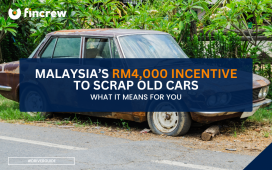When your car insurance policy gets rejected, you lose all the perks of the policy. It can be frustrating, disappointing, and can affect your bank balance. Insurance is a kind of risk management that offers select promises based on specific terms of the contract. It is usual for you to feel offended if your insurer does not live up to the pledge of claim settlement. However, you should know that many times insurance companies do have genuine reasons for rejecting a claim. It is your responsibility to ensure specific precautionary steps are done to get the appropriate incentives from your insurer without any hassle. Here are a few points to help you prevent the rejection of your car insurance claim.
Prevent Consequential Loss
Consequential loss arises when you try to run the car after an accident, thereby aggravating the vehicle’s damages. It is the most significant error you might be making because it is a consequential loss. So, for instance, if your car crashes into flooded water, and you try to start the engine, this will only worsen the situation. If water gets into the engine or fuel system, it’ll damage every single component inside the car, and it can cause a ‘hydro lock.’ In this case, your insurer will pay only to cover the initial damage caused by the water and not the hydro lock damage. This damage will be classified as consequential damage; your insurer will not cover its costs and reject the claim.
Report A Claim At The Earliest Time
There is a deadline before which you can make a claim. Insurers follow a stringent process if a customer wants to file for an insurance claim, as it needs to be done as swiftly as possible. If you delay more than the predefined time to make a claim, there are chances your insurer may not consider your application.
Inform Your Insurer About All Upgrades
One of the reasons car insurance claim get rejected is that the insurance company is not aware of the car’s upgrades. Remember when you took the policy, you gave your insurance company the car’s specifications, and your policy cover is based on these specifications. But after some time, you got an upgrade. Let’s say you installed a CNG kit in your car. Your insurer may reject your claim if the fuel type on your car insurance policy does not match your car’s actual fuel type. So it would be best if you informed your insurer about all kinds of upgrades done on the vehicle.
Don’t Break The Law
Your insurance company will honor your claim only when accidental damage has occurred. When you violate the law, it becomes almost impossible for your insurer to follow through because your intentions are not in the best interest of you or those around you. As a result, your claim will be rejected.
Inform Before Repair
Don’t send your vehicle for repairs without informing your insurance company to get approval. Your claim might be rejected if you do this because your car will be inspected to know the magnitude of damage it has suffered after an accident. Your insurance company will give an estimated quote of the expenses related to fixing this damage. Your claim may be rejected if you repair your car without cross-examination by your insurer.





